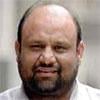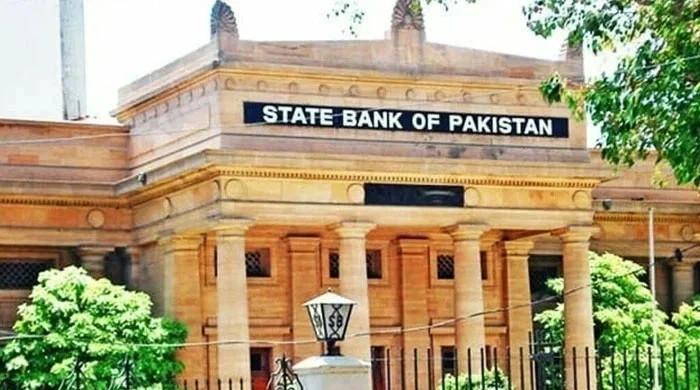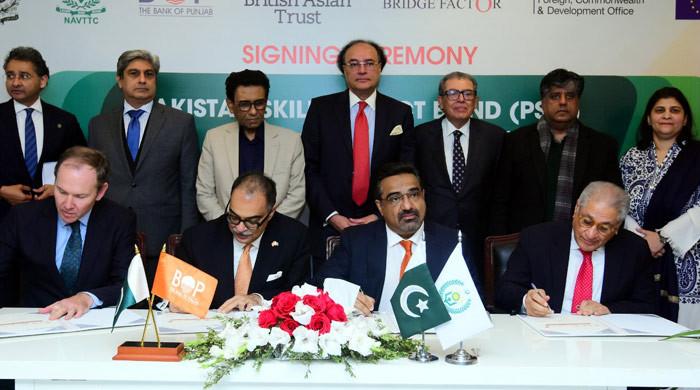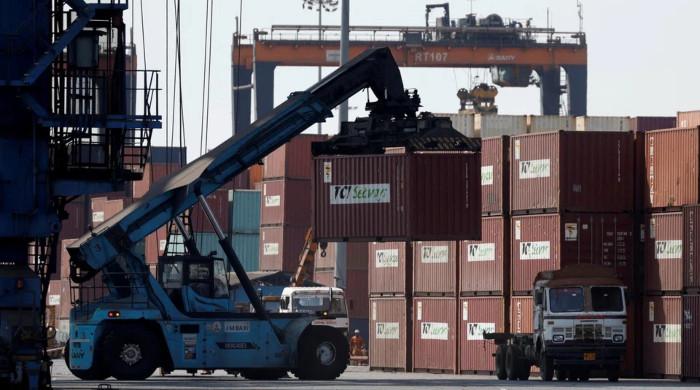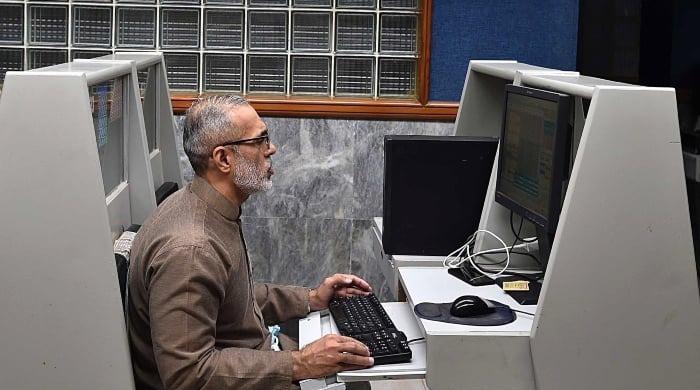Officials propose cut in Aug, Sept electricity bills amid countrywide protests
Proposed cuts would be applied to consumers' bills across six winter months, say insiders
August 29, 2023
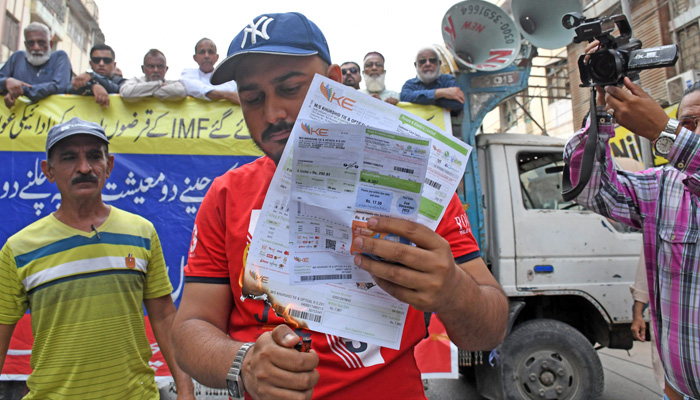
- Development comes as protests intensify across country.
- Proposed cuts to be applied in bills across 6 winter months.
- Suggestions include 30% to 35% reduction in power bills.
ISLAMABAD/ PESHAWAR: In the wake of mass protests against the hike in electricity bills and additional taxes across the country, top officials in the power and finance divisions have proposed recommendations on providing immediate relief to the public suggesting deductions in the bills for August and September, The News reported.
The proposals will be presented before Caretaker Prime Minister Anwaar-Ul-Haq Kakar during the upcoming federal cabinet meeting scheduled for today (Tuesday).
The development came as inflation-hit people have taken to the streets in many parts of the country against inflated bills.
While the specifics regarding the meeting remain undisclosed, insiders told The News that one potential suggestion involves a partial cut in electricity bills for August and September, which would serve as an initial relief measure. However, the proposed cuts would be applied to consumers' bills across the six winter months, in a staggered manner, mitigating the immediate load on consumers.
The government, furthermore, has decided not to immediately transfer the effects of the latest quarterly adjustment tariff from FY23, which stands at Rs5.40 per unit, over the next quarter. Instead, the plan is to gradually apportion this increase across the six-month winter period, spanning from October 2023 to March 2024.
By adopting this staged approach, the sharp increase in prices can be lessened, resulting in a decrease in the tariff rate from Rs5.40 per unit to Rs2.31 per unit during the winter season.
The impact of Rs1.24 per unit of the third quarter of FY23 would end in September 2023. In the winter season, electricity consumption goes down to just 10-12kMW, owing to which the electricity bills would tumble.
So the government has decided to pass some part of the inflated bills of August and September to consumers in six months of the winter season. However, there are some suggestions that 30% to 35% of the electricity bills should be reduced from the electricity bills, which would be passed on to consumers in the winter season in a staggered manner.
As far as the deduction of taxes of general sales tax (GST), withholding tax (WHT) and surcharges from electricity bills is concerned, the finance ministry would have to take the IMF on board. However, the official said that the IMF might not give its nod for a compromise on the tax revenue generation target, which is Rs9.2 trillion; therefore, there seemed no relief in the form of reduction in GST and WHT taxes.
Meanwhile, the federal cabinet ascertained startling disclosure that the average power tariff has gone up by Rs14 per unit, jacking it up from Rs35 to Rs49 per unit through annual rebasing, which the government has collected through electricity bills in August 2023.
The Ministry of Power informed the cabinet that the exchange rate of Rs286 against the US dollar was used to determine the base tariff for the current fiscal year, compared to much less for the last financial year. It left the government with no option but to raise the Annual Rebasing (AR) tariff to the tune of Rs7 per unit.
Now the federal cabinet would have two options — either to abolish the AR collection of Rs14/unit, collected through August 2023 electricity bills, or collect it in shape of staggered manner.
There is a proposal to collect Rs2 per unit during the next six-month period of the current fiscal year. There is no possibility of any relief in taxes including GST and WHT at a time when the country is under the International Monetary Fund (IMF) programme.
During scrutiny, the cabinet came out with a disclosure that the National Electric Power Regulatory Authority (Nepra) determined an AR tariff of Rs7 per unit, but the previous government made it effective in July 2023. The Ministry of Power could not recover Rs7 per unit Annual Rebasing of tariff in July 2023.
The AR tariff was implemented in August 2023, so the electricity bill tariff went up by Rs14 per unit in one go. Thus, the average tariff has gone up from Rs35 to Rs49 per unit with effect from August 2023, and such a massive hike in power bills caused hue and cry all across the country.
The official said that Pakistan’s power sector was witnessing the monster of capacity charges, which was standing around Rs18 per unit. The capacity charges turned from Rs1.3 to Rs1.6 trillion and there is a need to bring it down through utilisation of incremental package for industries. This average tariff on account of capacity payment needs to be brought down from Rs18 to Rs6 per unit in order to align it with the best international practices.
“Without tackling the capacity charges issues, the cash bleeding power sector cannot be fixed,” said the official.
When The News contacted the top guns of the power sector to ask about the adoption of a conservation plan to reduce utilisation, they said capacity charges would not reduce with the help of a conservation strategy. There is a need to adopt a multipronged strategy including revising the agreements with IPPs in order to reduce the capacity charges.
So far, the Ministry of Power has struck revised agreements with certain IPPs, but it resulted in a reduction of just Rs0.85 per unit. However, there are certain power producers including power projects related to China–Pakistan Economic Corridor (CPEC) and some others where there was no revision in tariffs, so there is a need to find amicable solutions on a permanent basis.
